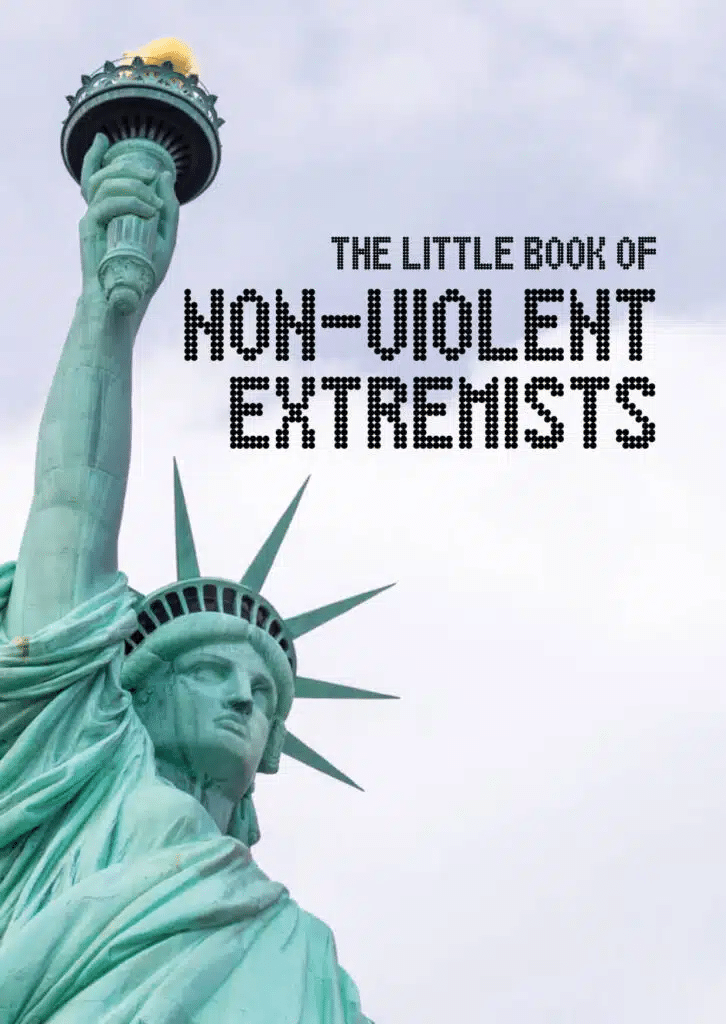The Christian Institute has warned that proposed changes to legislation on terrorism and extremism could threaten, rather than protect, religious freedom.
Following pro-Hamas protests across the UK, the Department for Levelling Up, Housing and Communities is said to be working on a new definition of the term extremism, and considering a renewed focus on ‘British values’.
Reports suggest the new definition could include groups and individuals whose behaviour helps “create a climate conducive to terrorism, hate crime and other violence”.
New extremism laws mustn’t repeat past failures

In recent weeks we’ve seen anti-Semitic incidents across the UK that many, including Christians, believe have no place in our society. Hamas’s terrorist atrocities were celebrated on our streets within hours.
There are understandable calls for the police to take more action, with new powers given to them if necessary – though the Government is right to say that existing powers must be fully used. Met police chief Mark Rowley claims there is a gap in the law. The Home Office is considering changes to terrorism legislation. Michael Gove’s officials are drawing up a new definition of extremism and considering a renewed focus on the concept of ‘British values’.
But Christians need to be wary. Because we’ve been here before. All too often, new laws supposed to be aimed at terrorism or extremism end up threatening rather than protecting religious freedom.
Warnings from recent history
Just consider the way ‘British values’ requirements were applied in schools. Ofsted’s British values inspections were hugely controversial. It proceeded like a bull in a china shop, targeting Orthodox Jewish schools and requiring them to teach same-sex marriage or potentially face closure! Pupils in other schools were questioned about whether they had been born in the wrong body. For some years, British values became a woke crusade.
None of this was intended, but it was the result.
Or take 2001’s Anti-Terrorism, Crime and Security Act. Introduced following 9/11, it included some undeniably important provisions (section 47 of the 2001 Act made it an offence to possess a nuclear weapon!) But the original Bill also included an incitement to religious hatred offence that could have criminalised Christian teaching about the uniqueness of Christ.
The Home Office website conceded this was possible in certain circumstances.
The Institute, working with others, saw off the offence in both 2001 and 2004-5. The substantially amended version that reached the statute book in 2006 has key safeguards that mean it’s no threat to faithful gospel ministry.
The recurring issue is overly broad drafting leading to unintended consequences. A legitimate problem may be identified, but the proposed solution is a sledgehammer to crack a nut. We might all agree that specific behaviour needs to be stopped, but without precise wording innocent behaviour is caught too.
In the last decade, attempts to capture ‘non-violent extremism’ have been very dangerous. Proposals for Ofsted to regulate ‘out of school settings’, while aimed at Islamic madrassas, would have drawn Sunday schools and holiday Bible clubs into the firing line. And nobody quite knew what the limits of Extremism Disruption Orders were going to be. We’re thankful these ideas were dropped after vigorous objections.
Fresh alarm bells
So when we hear that a new definition of extremism is being developed that will “go further than the current definition”, alarm bells should be sounding. The existing definition – using the term “fundamental British values”, which includes the nebulous “mutual respect and tolerance of different faiths and beliefs” – has already been problematic in schools, as we’ve seen.
The alarm bells should get even louder when we’re told the new extremism definition will “encompass more groups and individuals whose behaviour falls short of terrorism but helps to ‘create a climate conducive to terrorism, hate crime and other violence’”.
Defining extremism to include ‘creating a climate conducive to hate crime’ would be profoundly concerning in a context where a world-famous author can be branded a hatemonger simply for opposing self-ID sex changes.
And that ‘creating a climate’ language draws on a 2021 report co-authored by Mark Rowley. It advocated tackling “hateful extremism” and included calls to lower the thresholds of incitement to religious hatred laws – reopening the battles the Institute and its supporters fought back in 2001-2006.
Removing vital protections for free speech would certainly give the police more powers, but it also would fundamentally undermine democracy and free speech.
Gospel freedom
More than 20 years on, we come back to Lord Justice Sedley’s seminal statement on free speech:
”]“Freedom of speech includes not only the inoffensive but the irritating, the contentious, the eccentric, the heretical, the unwelcome and the provocative, provided it does not tend to provoke violence. Freedom only to speak inoffensively is not worth having.”
”
Yes, there is that important proviso: “provided it does not tend to provoke violence”, but laws must be carefully drafted to fall within that proviso, and not extend to censoring things that are merely controversial, unpopular or cause offence.
Most importantly, they must not inhibit freedom to declare the Gospel, which carries its own unique offence.
That is the freedom we are currently privileged to enjoy and must be vigilant to defend.
This little booklet makes the big point that some non-violent ‘extremists’ turn out to be heroic people of global significance. Successive UK governments have sought to confront non-violent extremism. But without a clear, precise and well-understood definition this is a dangerous road to go down. Our little list of heroes could easily have been accused of breaching modern ‘non-violent extremism’ thresholds.



